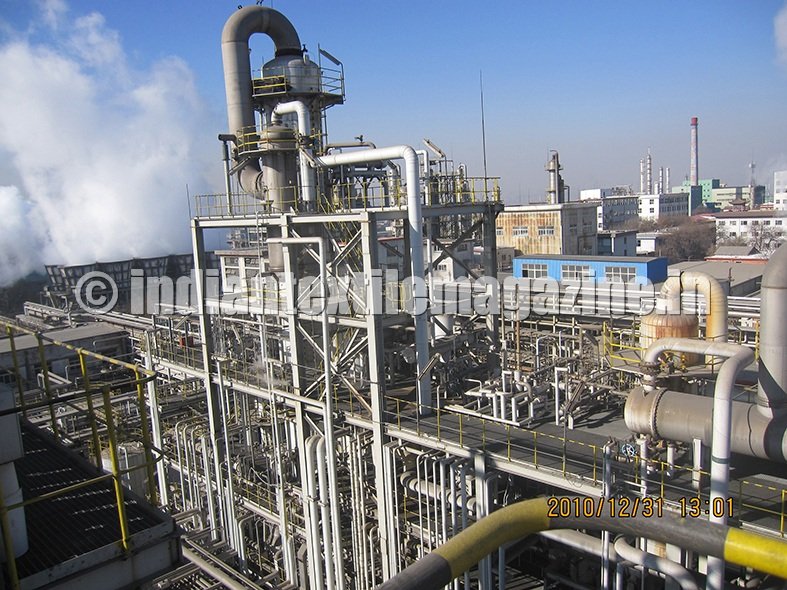PiControl Solutions LLC, an industrial process control software and technology company has APC (Advanced Process Control) technology for improving operation and profits in Polyester Fiber plants.
PiControl Solutions LLC expects to see around a 3- 4% improvement in the Polyester Fiber plant’s operating efficiency – (SD – Super Dull) production and wasted Ethylene Glycol (E.G.) recovery increase) and a 50% or more reduction in oscillation amplitudes due to aggressive or sluggish control for all control loops. The oscillation reduction enablea smoother but faster running of the plant with increased stability in all control loops.
Also, smoother and faster grade transitions are possible due to Polyester APC software.
The APC system will also take into consideration improvements of Furnace control design and operation.
Based on P&ID review and discussions between the Polyester Fiber plant personnel and PiControl Solutions LLC team expertise, first all Manipulated Variables (MVs) and Controlled Variables (CVs) are identified and noted. APC will consist of new DCS-based control schemes comprising of model-based control (MBC), cascade PIDs, override selector control schemes, feedforward and inferential control schemes, online heat and mass balance and some other new calculations and logic. All these control schemes can be designed to reside completely inside the DCS or a separate computer. The new APC schemes are reviewed and tested by PiControl Solutions LLC engineers before commissioning and activation of APC.
Base-level PID tuning is a critical pre-requisite step. Unless base-level PIDs are well tuned, APC cannot work well since APC will be manipulating the setpoints of the base-level PIDs. Based on past experience, PiControl Solutions LLC often sees significant opportunity for improvement in this area. PiControl Solution’s unique and novel closed-loop system identification technology makes it possible to tune base-level PIDs quickly, efficiently and precisely. PiControl will perform system identification and PID tuning optimization of the all base-level PID controllers for improving base-level PID control quality and performance in the Polyester Fiber APC.
Once the APC control matrix is finalized, the PiControl Solutions LLC begins thorough data analysis of plant data. Where no dynamic information is available from historical plant data due to lack of any setpoint change or measured disturbances, PiControl Solutions LLC will request the Polyester Fiber plant to make some small setpoint changes in the APC manipulated variables. Based on this data and detail interview with the best process operators and engineers, PiControl Solutions LLC will identify APC dynamic models which will be used for calculating APC control scheme and tuning parameters inside the DCS. The list of APC MVs analyzed by PiControl is provided as pasrt of the APC project.
PiControl Solutions LLC creates a APC design document showing all new tags to be built inside the DCS. This APC design proposed by PiControl Solutions LLC is unique, effective, convenient and robust. This is because all APC is completely inside the existing DCS, with no need for new hardware, software or even a new computer. The APC will use mostly standard and a few custom DCS blocks. The APC design document will be complete, thorough and detailed enough to allow any DCS engineer to implement the APC schemes inside the DCS. During the APC design and implementation by the DCS control engineer, PiControl Solutions LLC will be available even remotely and on-site consultation and guidance and will make sure that the design is correct.
While the DCS engineer is designing and building DCS blocks comprising of the APC system, PiControl Solutions LLC will be analyzing process data, calculate dynamic models and control parameters to be input in the DCS blocks comprising the APC system.
All APC logic first will be tested using Dummy tags and simulating real process control behavior and issues. A FAT (factory acceptance test) will be conducted to make sure that the APC design is complete and correct. All control parameters will be input in the DCS blocks and then the APC schemes will be activated sequentially until all APC schemes are active.
Poor control, oscillations and deviations in one control loop can cause interaction and disturbances in several other control loops. APC will help to reduce the amplitude of deviation in most control loops. This will have a stabilizing effect on the entire plant. This stability will allow APC schemes to push against constraints.

This is excellent, please contact me asap.
Excellent blog, please contact me soon at 8324956436